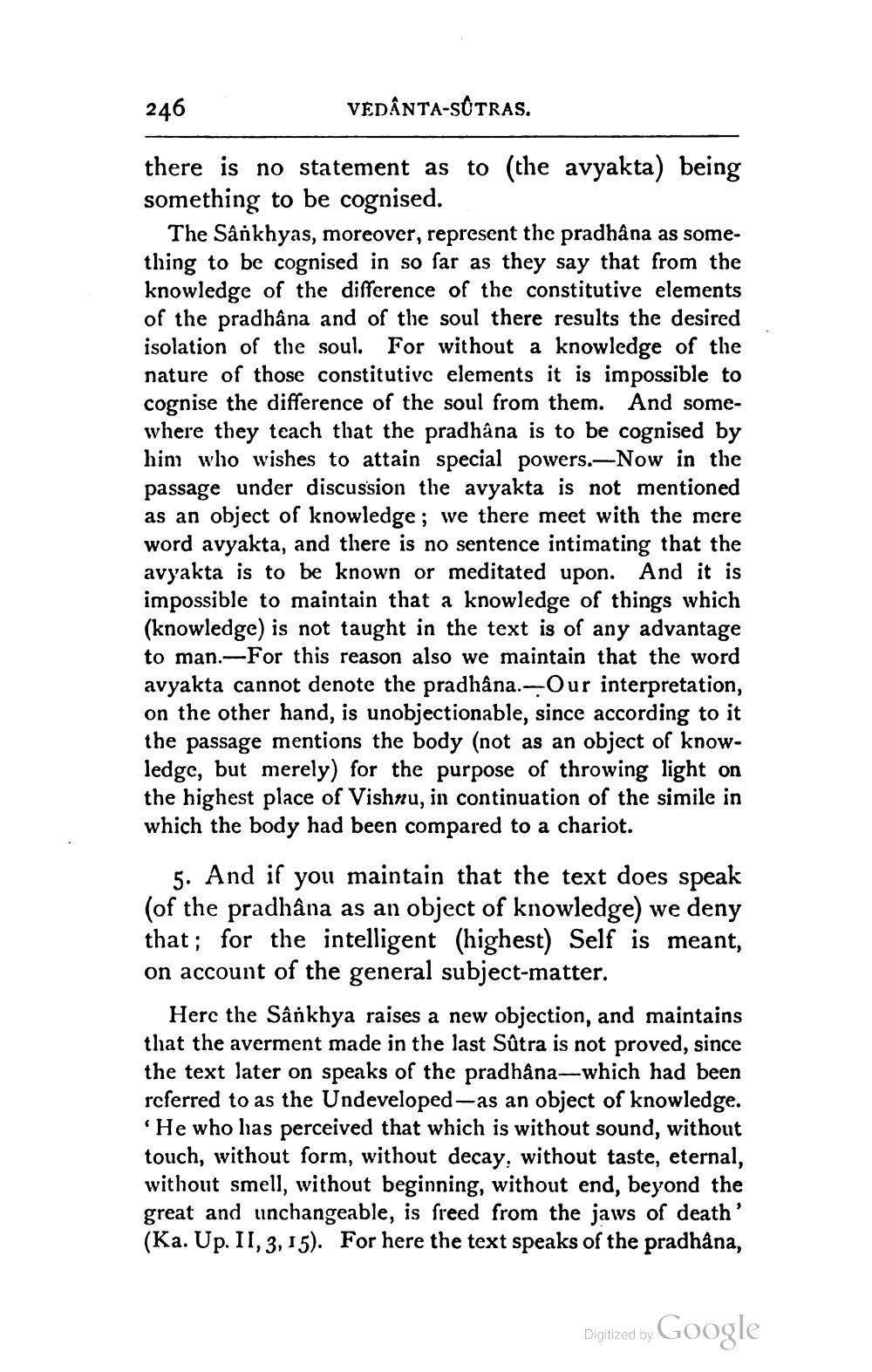________________
246
VÉDÂNTA-SÛTRAS.
there is no statement as to the avyakta) being something to be cognised.
The Sânkhyas, moreover, represent the pradhâna as something to be cognised in so far as they say that from the knowledge of the difference of the constitutive elements of the pradhâna and of the soul there results the desired isolation of the soul. For without a knowledge of the nature of those constitutive elements it is impossible to cognise the difference of the soul from them. And somewhere they teach that the pradhana is to be cognised by him who wishes to attain special powers.—Now in the passage under discussion the avyakta is not mentioned as an object of knowledge; we there meet with the mere word avyakta, and there is no sentence intimating that the avyakta is to be known or meditated upon. And it is impossible to maintain that a knowledge of things which (knowledge) is not taught in the text is of any advantage to man.-For this reason also we maintain that the word avyakta cannot denote the pradhana. Our interpretation, on the other hand, is unobjectionable, since according to it the passage mentions the body (not as an object of knowledge, but merely) for the purpose of throwing light on the highest place of Vishnu, in continuation of the simile in which the body had been compared to a chariot.
5. And if you maintain that the text does speak (of the pradhâna as an object of knowledge) we deny that; for the intelligent (highest) Self is meant, on account of the general subject-matter.
Herc the Sânkhya raises a new objection, and maintains that the averment made in the last Sûtra is not proved, since the text later on speaks of the pradhâna—which had been referred to as the Undeveloped -as an object of knowledge. He who has perceived that which is without sound, without touch, without form, without decay, without taste, eternal, without smell, without beginning, without end, beyond the great and unchangeable, is freed from the jaws of death' (Ka. Up. II, 3, 15). For here the text speaks of the pradhana,
Digitized by Google




